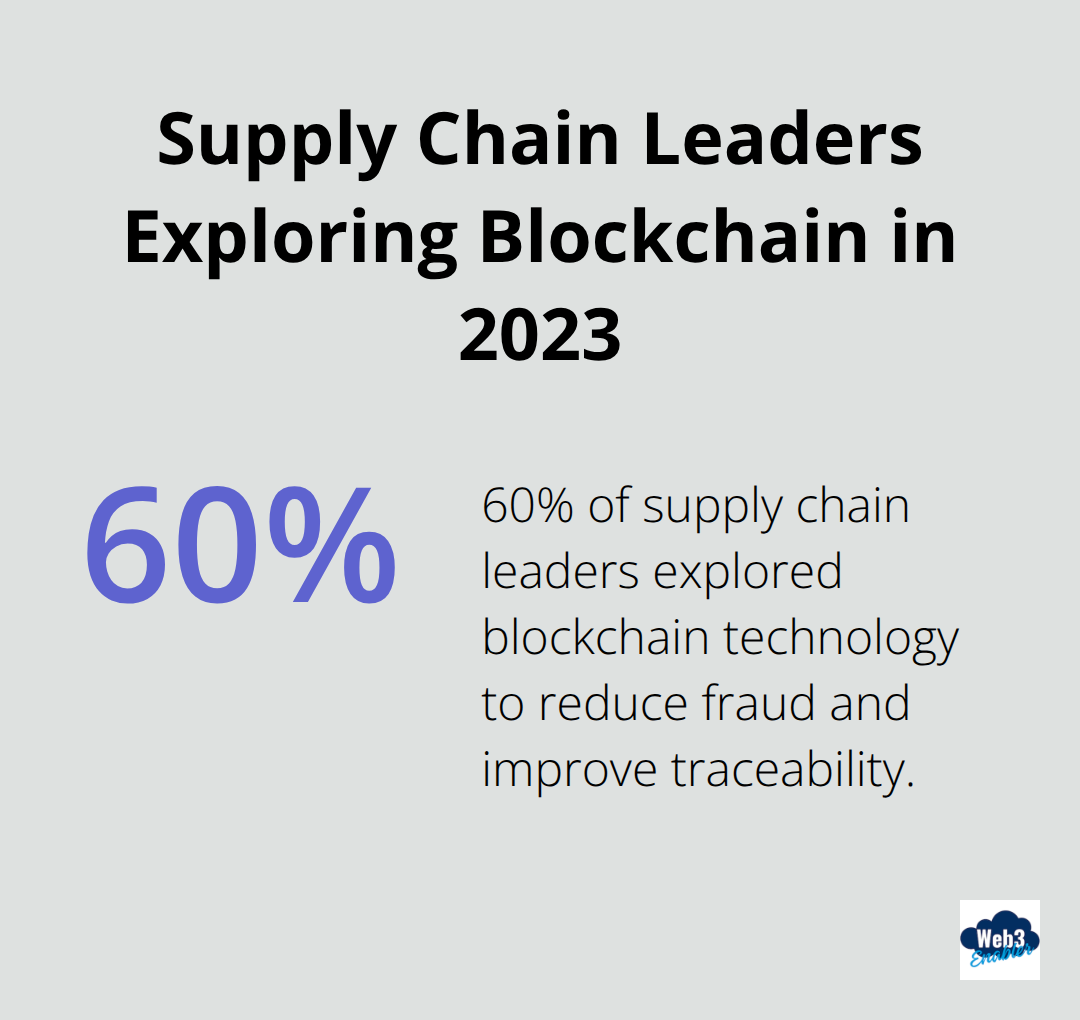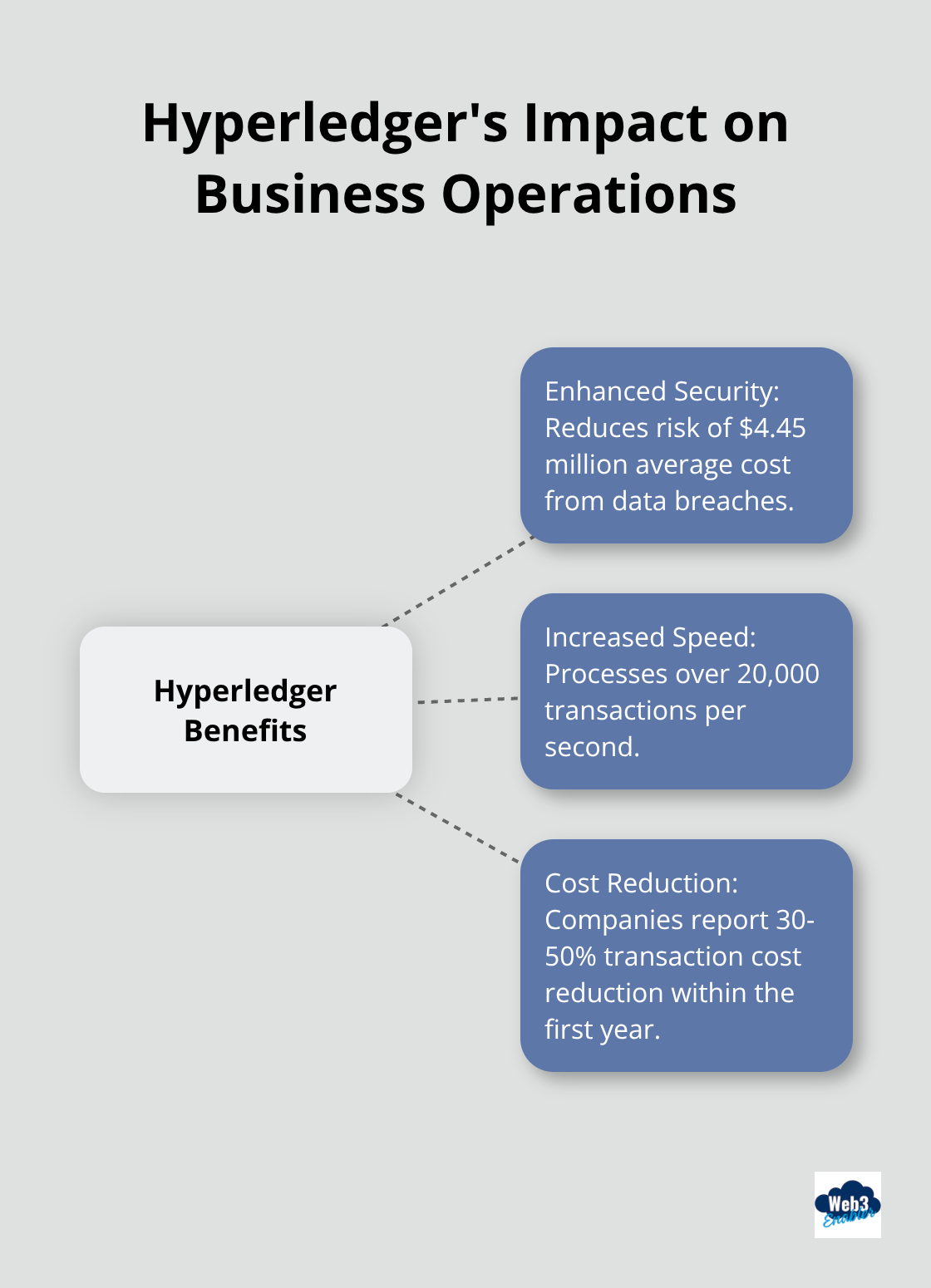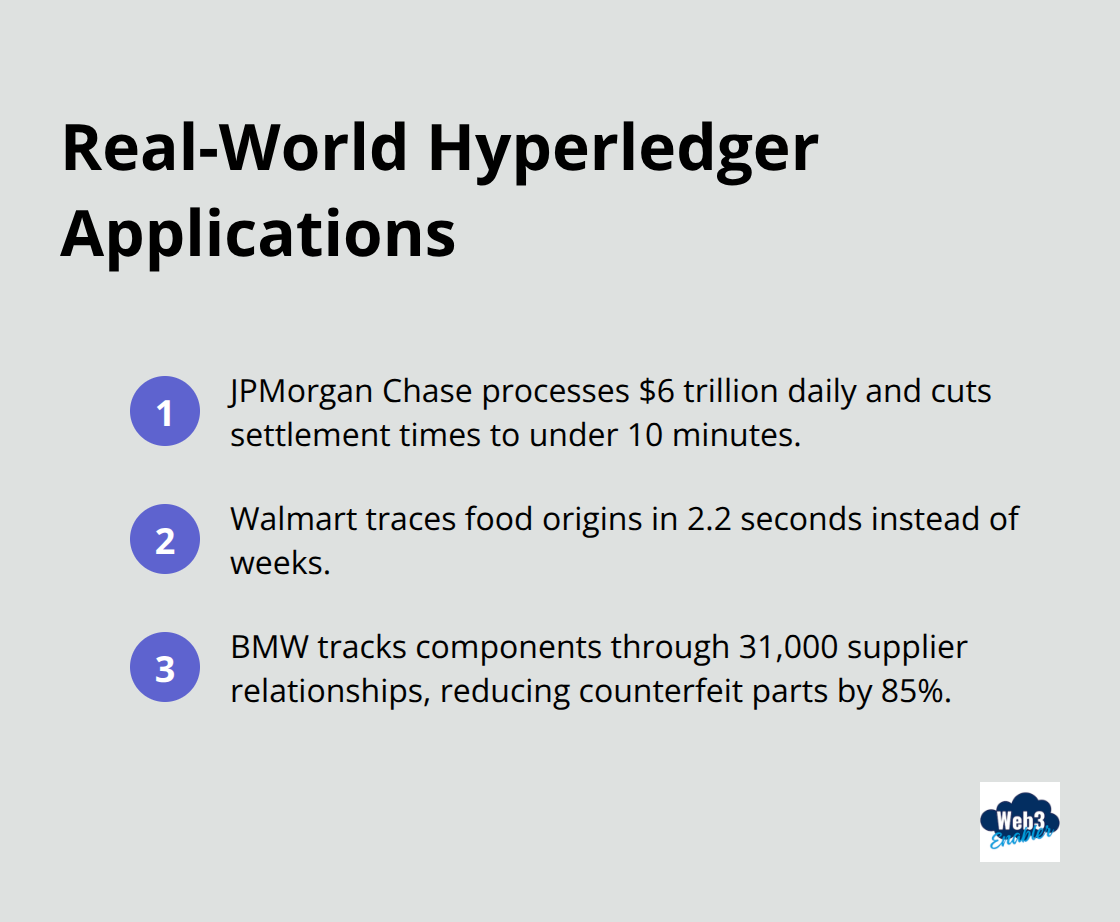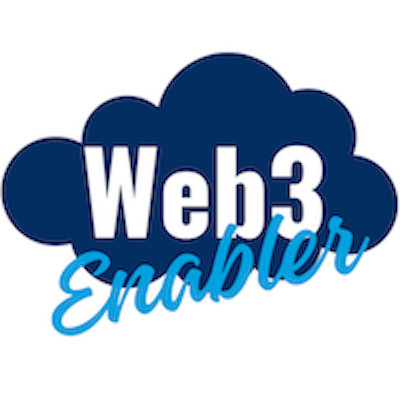
Enterprise blockchain technology has moved beyond cryptocurrency hype into real business solutions. Hyperledger blockchain for business offers companies a secure, private alternative to public networks.
At Web3 Enabler, we’ve seen how this open-source framework transforms operations across industries. From faster payments to streamlined supply chains, Hyperledger delivers measurable results for forward-thinking organizations.
What Makes Hyperledger Different from Other Blockchain Options
Enterprise-First Architecture
Hyperledger takes a fundamentally different approach to blockchain technology compared to Bitcoin or Ethereum. This Linux Foundation project creates permissioned networks where organizations control who participates and what data they access. Public blockchains process thousands of transactions per second globally, while Hyperledger Fabric serves enterprise needs with permissioned networks and private blockchain capabilities.
The framework eliminates cryptocurrency requirements and resource-intensive processes that drain energy in public networks. Companies gain complete control over their data while they maintain the security benefits of distributed ledger technology. Major corporations including Walmart, JPMorgan Chase, and BMW have implemented Hyperledger solutions to address specific business challenges rather than speculative investment opportunities.
Financial Services Transform Operations
Financial institutions leverage Hyperledger for cross-border payments that settle in minutes instead of days. Trade finance processes that traditionally required weeks now complete in hours through automated document verification. Banks reduce settlement times from days to minutes while they maintain regulatory compliance across multiple jurisdictions.
Payment processors eliminate intermediaries and reduce transaction costs by up to 40% compared to traditional banking networks. The technology enables real-time transaction monitoring and instant fraud detection, which protects both businesses and their customers from financial losses.
Supply Chain Transparency Becomes Standard
Manufacturing companies track components from suppliers through production to end customers. This visibility reduces counterfeit products by up to 90% according to studies from MIT. Over 60% of supply chain leaders explored blockchain technology in 2023 to reduce fraud and improve traceability (based on recent industry surveys).

Healthcare organizations create secure patient record systems where doctors access complete medical histories instantly while they maintain HIPAA compliance. The immutable record system prevents data tampering and provides complete audit trails for regulatory requirements.
These real-world applications demonstrate how Hyperledger addresses specific business pain points rather than theoretical blockchain concepts. The technology delivers measurable improvements in efficiency, security, and cost reduction across multiple industries through optimizing business workflows.
Why Hyperledger Delivers Measurable Business ROI
Hyperledger transforms business operations through three fundamental improvements that directly impact your bottom line. Security breaches cost companies an average of $4.45 million according to IBM’s 2023 Cost of a Data Breach Report, while Hyperledger’s permissioned architecture reduces this risk through cryptographic protection and role-based access controls. The framework processes transactions at speeds that exceed 20,000 transactions per second compared to traditional database systems that struggle with high-volume operations. Companies that implement Hyperledger report transaction cost reductions of 30-50% within the first year, primarily through elimination of intermediaries and automated verification processes.

Private Networks Eliminate Data Vulnerabilities
Hyperledger creates isolated environments where sensitive business data never touches public networks or third-party systems. Financial institutions like JPMorgan Chase leverage this privacy to process millions of transactions daily while they maintain complete regulatory compliance across multiple jurisdictions. The framework enables selective data sharing where partners access only relevant information rather than entire databases. Healthcare organizations are exploring blockchain implementation to enhance patient record security through encrypted data that remains under institutional control. Manufacturing companies protect intellectual property and trade secrets through private channels that competitors cannot access or monitor.
Supply Chain Costs Drop Through Automated Verification
Manual verification processes that traditionally require days now complete in minutes through smart contract automation. Walmart reduced food safety investigation times from weeks to 2.2 seconds when the company used Hyperledger for supply chain tracking. The technology eliminates paperwork processing costs that average $25-35 per transaction in traditional supply chains. Companies achieve 40% reduction in compliance costs through automated audit trails that regulators can access instantly. Product authenticity verification prevents counterfeit losses that cost global businesses $52 billion annually (according to the International Chamber of Commerce).
Payment Processing Becomes Instant and Affordable
Cross-border payments that traditionally cost 3-7% in fees now process for under 1% when businesses use Hyperledger networks. Settlement times drop from 3-5 business days to under 10 minutes for international transactions. Banks eliminate correspondent relationships that add $15-25 per transaction in hidden fees. The technology processes payment volumes that would crash traditional systems during peak periods. Real-time transaction monitoring prevents fraud losses that average 0.05% of total transaction volume in conventional payment systems.
These measurable improvements demonstrate why enterprises across industries choose Hyperledger over traditional systems. The next step involves examining specific real-world applications where companies have achieved these results.
How Leading Companies Use Hyperledger Today

JPMorgan Chase Processes $6 Trillion Daily Through Blockchain Networks
JPMorgan Chase operates JPM Coin on Hyperledger infrastructure and has executed live blockchain transactions including intraday repo transactions exchanging tokenized U.S. Treasury bonds for cash. The bank cut settlement times from 3-5 business days to under 10 minutes for cross-border payments while it reduced transaction costs by 35%. Deutsche Bank reports similar results with their blockchain trade finance platform, which processes $1.2 billion in letters of credit annually through automated document verification.
These financial institutions eliminate correspondent relationships that typically add $25-30 per international wire transfer. The technology handles payment volumes that would crash traditional SWIFT networks, particularly when transaction volumes spike 300-400% above normal levels during end-of-quarter cycles.
Walmart Traces Food Origins in 2.2 Seconds Instead of Weeks
Walmart implemented Hyperledger Fabric across its global supply chain to track products from farm to shelf. The system reduced food safety investigation times from 6-7 weeks to 2.2 seconds (according to Frank Yiannas, the company’s Vice President of Food Safety). The platform monitors 25 product categories across 100+ countries and prevents contaminated products from reaching consumers.
The technology reduces food waste by 40% through precise expiration tracking. Maersk partnered with IBM to create TradeLens on Hyperledger, which processes 30% of global ocean container shipments and cuts documentation processing times from weeks to hours.
BMW Eliminates Counterfeit Parts Through Supply Chain Transparency
BMW tracks vehicle components through 31,000 supplier relationships using Hyperledger technology. The system reduces counterfeit parts by 85% and improves warranty claim processing from 45 days to under 4 hours through automated verification. The automaker maintains complete visibility across its global manufacturing network while it protects sensitive supplier information through permissioned access controls.
Manufacturing companies achieve these results because Hyperledger creates tamper-proof records that auditors can verify instantly. The technology eliminates manual verification processes that traditionally require weeks to complete.
Final Thoughts
Hyperledger blockchain for business delivers measurable results that traditional systems cannot match. Companies reduce transaction costs by 30-50%, eliminate settlement delays from days to minutes, and achieve 85% reduction in counterfeit products through transparent supply chains. Financial institutions process $6 trillion daily while manufacturers track components across 31,000 supplier relationships with complete visibility.
Implementation begins with identification of specific business pain points where blockchain adds value. Organizations should start with pilot projects that demonstrate ROI before they scale across departments. The technology requires technical expertise and strategic planning to integrate with existing systems effectively (particularly for complex enterprise environments).
Enterprise blockchain adoption will accelerate as more companies recognize competitive advantages. Payment processing, supply chain transparency, and data security improvements drive this growth across industries. At Web3 Enabler, we help businesses integrate blockchain technology seamlessly into their existing workflows through our native Salesforce solution that enables companies to accept stablecoin payments and send global payments faster.









